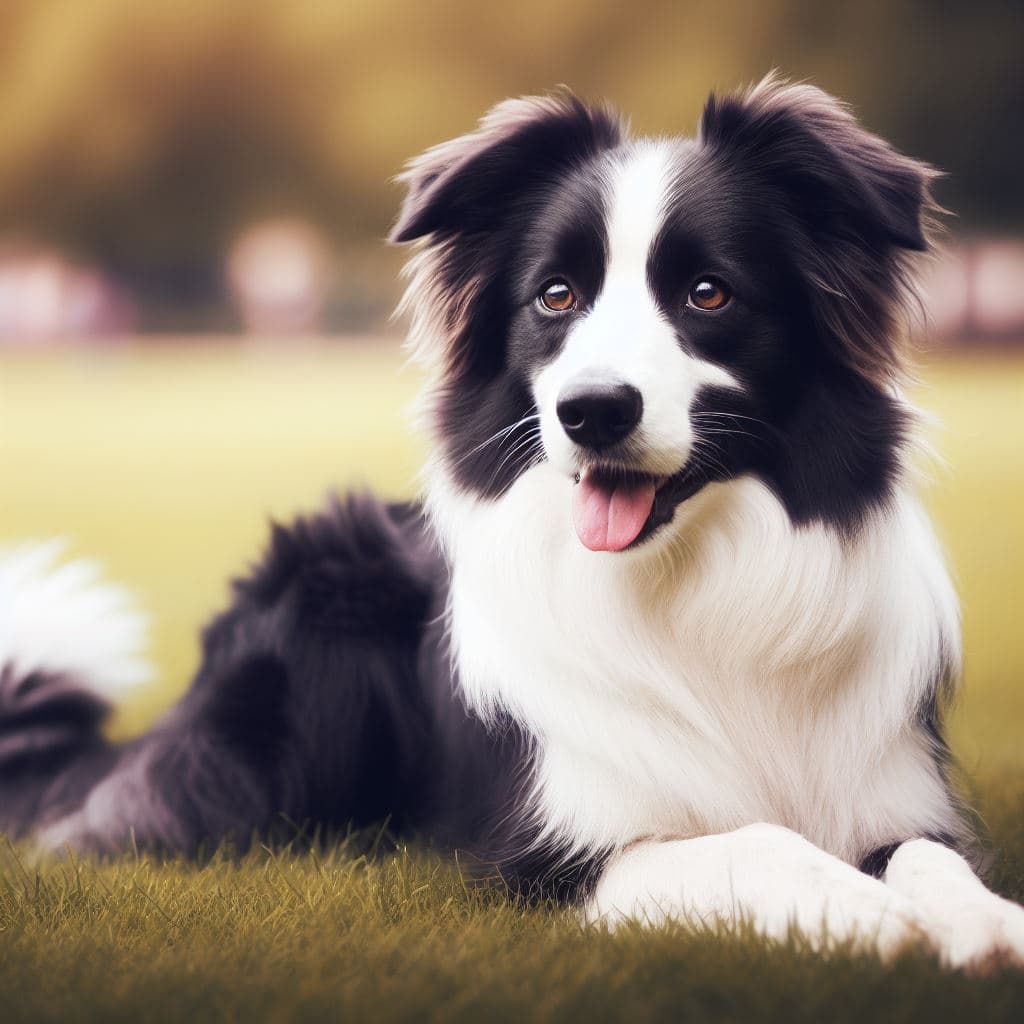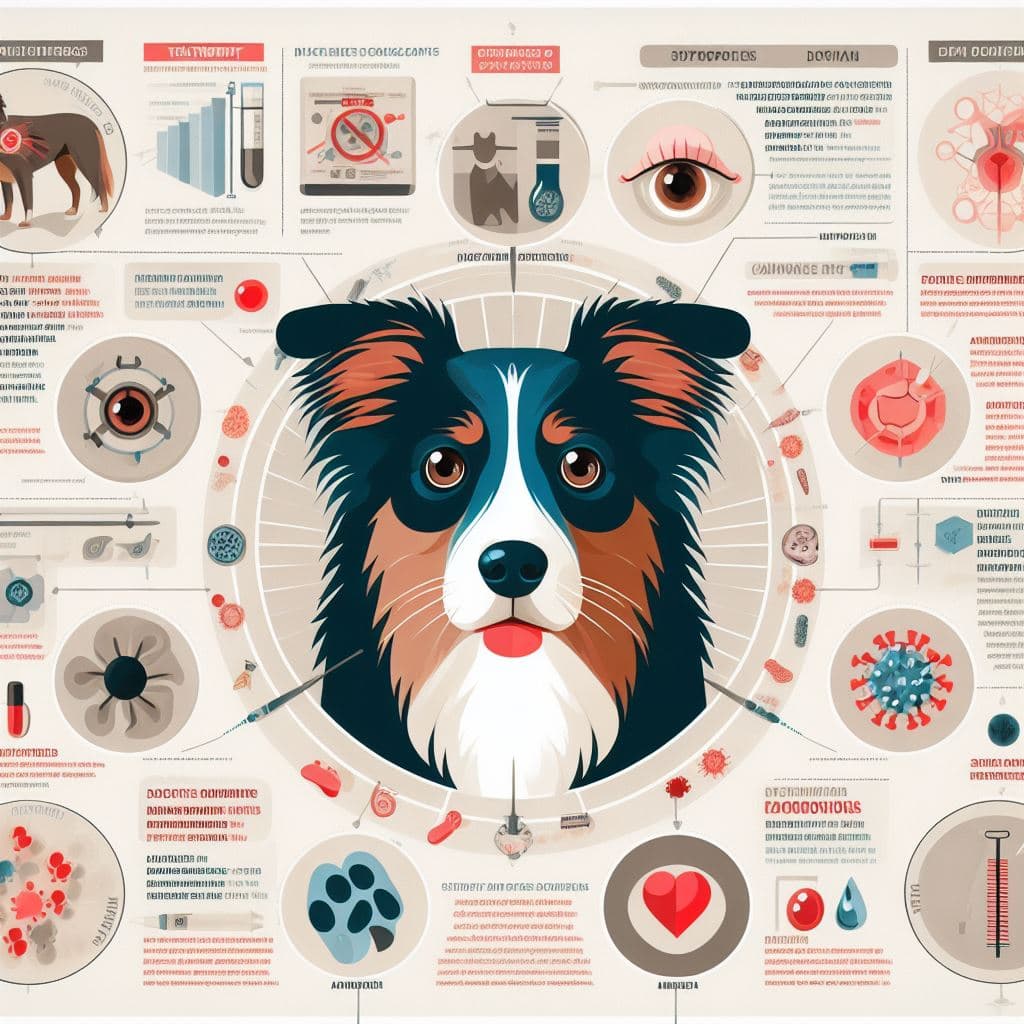If you are a dog lover, you probably know that dogs are not just cute and cuddly companions, but also complex animals with their own personalities, emotions, and instincts. Some dogs are friendly and gentle, while others are more aggressive and prone to bite. But what makes a dog more likely to bite? And which breeds are the most dangerous?
In this article, we will answer these questions and provide you with some useful tips on how to prevent dog bites and deal with them if they happen. We will also reveal the 10 most aggressive dog breeds according to a new study, and explain why they may act that way.
But before we dive into the list, let's start with a shocking fact: did you know that the most aggressive dog breed is not what you think? In fact, it is not even a large or powerful dog, but a small and fluffy one. Can you guess which one it is? Keep reading to find out!Which Dogs Are Most Likely to Bite?
If you are a dog lover, you probably know that dogs are not just cute and cuddly companions, but also complex animals with their own personalities, emotions, and instincts. Some dogs are friendly and gentle, while others are more aggressive and prone to bite. But what makes a dog more likely to bite? And which breeds are the most dangerous?
In this article, we will answer these questions and provide you with some useful tips on how to prevent dog bites and deal with them if they happen. We will also reveal the 10 most aggressive dog breeds according to a new study, and explain why they may act that way.
But before we dive into the list, let’s start with a surprising fact: did you know that the most aggressive dog breed is not what you think? In fact, it is not a large or powerful dog, but a adorable one with spots. Can you guess which one it is? Keep reading to find out!
What Causes Dog Aggression?
Dog aggression is a serious problem that affects millions of people every year. According to the Centers for Disease Control and Prevention (CDC), approximately 4.5 million dog bites occur in the United States each year, and 800,000 of those bites result in the need for medical care.
But why do dogs bite? There are many factors that can influence a dog's behavior, such as genetics, health, training, socialization, environment, and situation. Some of the most common causes of dog aggression are:
- Fear: A dog may bite if it feels threatened or scared by something or someone. This can happen when a dog is startled, cornered, or approached by a stranger or another animal. Fearful dogs may also show signs of anxiety, such as trembling, panting, or hiding.
- Pain: A dog may bite if it is suffering from an injury or illness that causes discomfort or pain. This can happen when a dog is touched in a sensitive area, such as its ears, tail, or paws. Painful dogs may also show signs of distress, such as whining, limping, or licking.
- Protection: A dog may bite if it is trying to protect itself, its owner, its territory, or its resources. This can happen when a dog perceives a threat to its safety or belongings, such as its food, toys, bed, or crate. Protective dogs may also show signs of dominance, such as growling, barking, or snarling.
- Possession: A dog may bite if it is possessive of something or someone that it values. This can happen when a dog does not want to share or give up something that it considers its own, such as its food, toys, bed, or owner. Possessive dogs may also show signs of jealousy, such as nipping, snapping, or guarding.
- Play: A dog may bite if it is playing too rough or does not know how to control its bite force. This can happen when a dog is not properly socialized or trained to play politely with humans or other animals. Playful dogs may also show signs of excitement, such as jumping, chasing, or mouthing.
As you can see, there are many reasons why a dog may bite. However, this does not mean that all dogs are aggressive or that biting is inevitable. Most dogs are friendly and well-behaved if they are raised and treated with love and respect. Moreover, there are many ways to prevent and reduce the risk of dog bites.
How to Prevent Dog Bites?
Dog bites can be prevented by following some simple guidelines that can help you understand and communicate with dogs better. Here are some tips on how to prevent dog bites:
- Learn about dog body language: Dogs use their body language to express their feelings and intentions. By learning how to read their signals, you can avoid situations that may trigger aggression or fear in them. For example, if a dog is showing signs of stress or discomfort, such as yawning, licking its lips, or turning its head away, you should back off and give it some space.
- Choose the right breed for your lifestyle: Different breeds have different characteristics and needs that may affect their behavior and temperament. By choosing a breed that matches your lifestyle and expectations, you can avoid potential conflicts or frustrations that may lead to aggression. For example, if you live in an apartment or have little time for exercise, you should avoid breeds that are very active or need a lot of space, such as Huskies or Great Danes.
- Socialize your dog from an early age: Socialization is the process of exposing your dog to different people, animals, and environments in a positive and safe way. By socializing your dog from an early age, you can help it develop confidence and trust and reduce its fear or aggression toward unfamiliar situations or stimuli. For example, if you want your dog to be friendly with children, you should introduce it to them gradually and reward it for calm and polite behavior.
- Train your dog with positive reinforcement: Training is the process of teaching your dog how to behave and respond to commands in a consistent and clear way. By training your dog with positive reinforcement, you can help it learn good manners and skills and strengthen your bond and communication with it. Positive reinforcement means rewarding your dog for doing what you want and ignoring or redirecting what you don't want. For example, if you want your dog to sit, you should say the word "sit" and give it a treat or praise when it does so.
- Spay or neuter your dog: Spaying or neutering is the process of removing the reproductive organs of your dog. By spaying or neutering your dog, you can reduce its hormonal fluctuations and impulses that may cause aggression or frustration. Spaying or neutering can also prevent unwanted pregnancies and health problems such as cancer or infections.
- Supervise your dog around children and other animals: Children and other animals may not understand or respect a dog's boundaries or signals. By supervising your dog around them, you can prevent accidents or injuries that may result from biting or scratching. You should also teach children and other animals how to interact with dogs safely and respectfully. For example, you should tell them not to approach a dog that is sleeping or eating, not to pull its ears or tail, and not to tease or hurt it.
- Avoid situations that may trigger aggression: Some situations may be stressful or threatening for your dog and may cause it to react aggressively. By avoiding these situations, you can prevent potential bites or attacks. For example, you should not leave your dog alone in a car or a yard, not expose it to loud noises or fireworks, and not force it to meet strangers or other dogs.
By following these tips, you can prevent most dog bites and enjoy a happy and healthy relationship with your dog. However, sometimes, despite your best efforts, a bite may still happen. In that case, you should know how to deal with it properly.
How to Deal with Dog Bites?
Dog bites can be painful and scary, but they can also be dangerous and cause infections or diseases. Therefore, it is important to know how to deal with them properly. Here are some steps on how to deal with dog bites:
- Stop the bleeding: If the bite has broken the skin, you should apply pressure to the wound with a clean cloth or bandage to stop the bleeding. You should also elevate the injured area above the level of your heart to reduce swelling and blood loss.
- Clean the wound: If the bite has broken the skin, you should wash the wound with soap and water as soon as possible to remove any dirt or bacteria. You should also apply an antibiotic ointment to prevent infection and cover the wound with a sterile dressing or bandage.
- Seek medical attention: If the bite is deep, large, or bleeding heavily, you should seek medical attention immediately. You may need stitches, tetanus shots, or rabies shots depending on the severity of the bite and the vaccination status of the dog. You should also seek medical attention if you develop signs of infection, such as fever, redness, swelling, pus, or pain.
- Report the incident: If the bite was caused by someone else's dog, you should report the incident to the local animal control or health department. You should also get the contact information of the owner and any witnesses and ask for proof of the dog's vaccination history. This can help you determine if you need rabies shots and if you have any legal rights or responsibilities.
By following these steps, you can deal with dog bites effectively and minimize their consequences. However, prevention is always better than cure, so you should always be careful and respectful around dogs, especially those that are unfamiliar or aggressive.
The 10 Most Aggressive Dog Breeds
Now that you know how to prevent and deal with dog bites, let's take a look at the 10 most aggressive dog breeds according to a new study by researchers from the University of Helsinki. The study analyzed data from over 9,000 dogs of 24 different breeds and measured their aggression levels based on owner reports.
The study found that smaller dogs are more likely to behave aggressively than larger dogs, possibly because they are more fearful or insecure. The study also found that breed-specific factors, such as genetics, temperament, and breeding history, play a role in determining a dog's aggression level.
Here are the 10 most aggressive dog breeds according to the study:
10. Border Collie

Border Collies are medium-sized dogs that were originally bred for herding sheep. They are known for their intelligence, energy, and work ethic. They are also very loyal and affectionate with their owners.
However, Border Collies can also be very sensitive and reactive to their environment. They may bite if they are bored, stressed, or overstimulated. They may also show aggression toward other dogs or animals that they perceive as prey or competitors.
Border Collies need a lot of mental and physical stimulation to keep them happy and healthy. They also need proper training and socialization to learn how to behave appropriately and cope with different situations.
9. German Shepherd
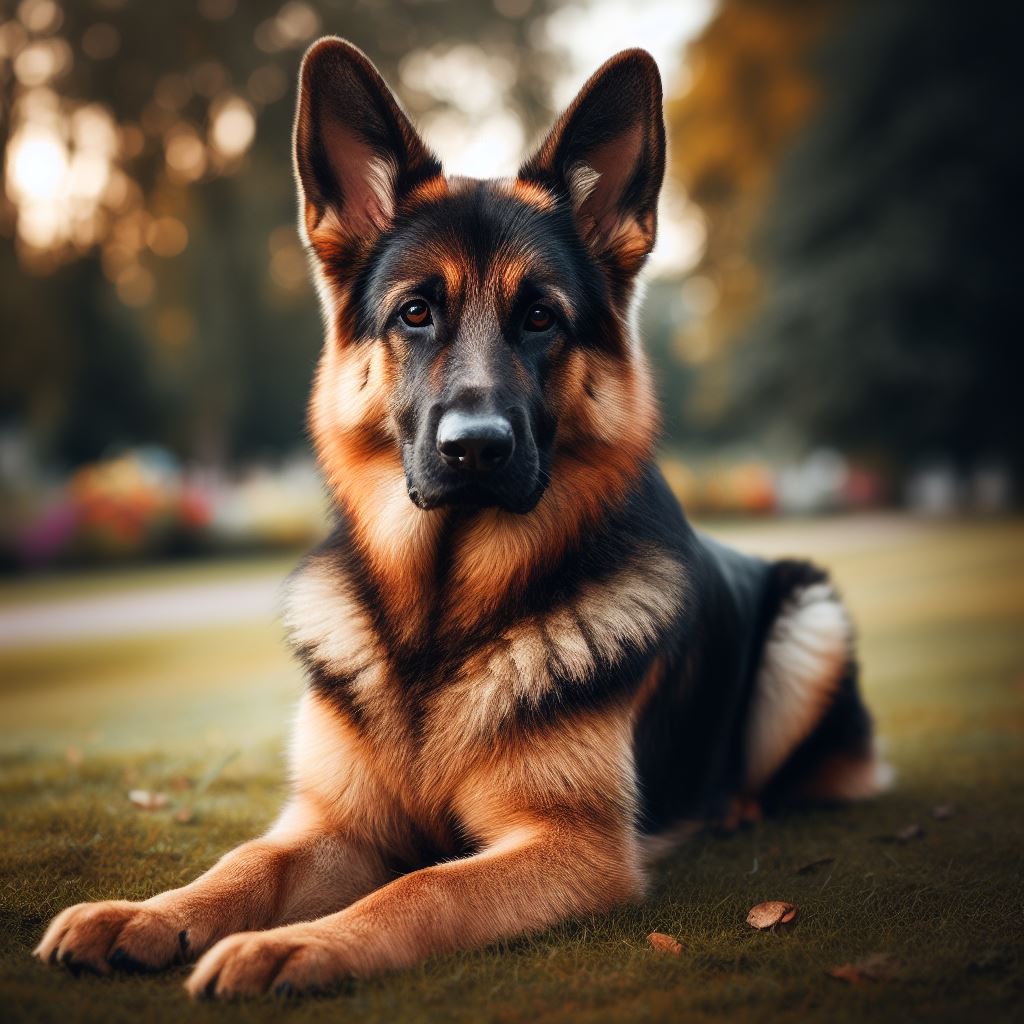
German Shepherds are large dogs that were originally bred for herding and guarding livestock. They are known for their intelligence, courage, and loyalty. They are also very versatile and adaptable, making them suitable for various roles such as police, military, or service dogs.
However, German Shepherds can also be very protective and territorial of their owners and property. They may bite if they feel threatened or challenged by strangers or other dogs. They may also show aggression due to poor breeding, lack of socialization, or inadequate training.
German Shepherds need a lot of exercise and mental stimulation to keep them fit and happy. They also need firm and consistent training and socialization to learn how to respect and trust their owners and other people and animals.
8. Cocker Spaniel
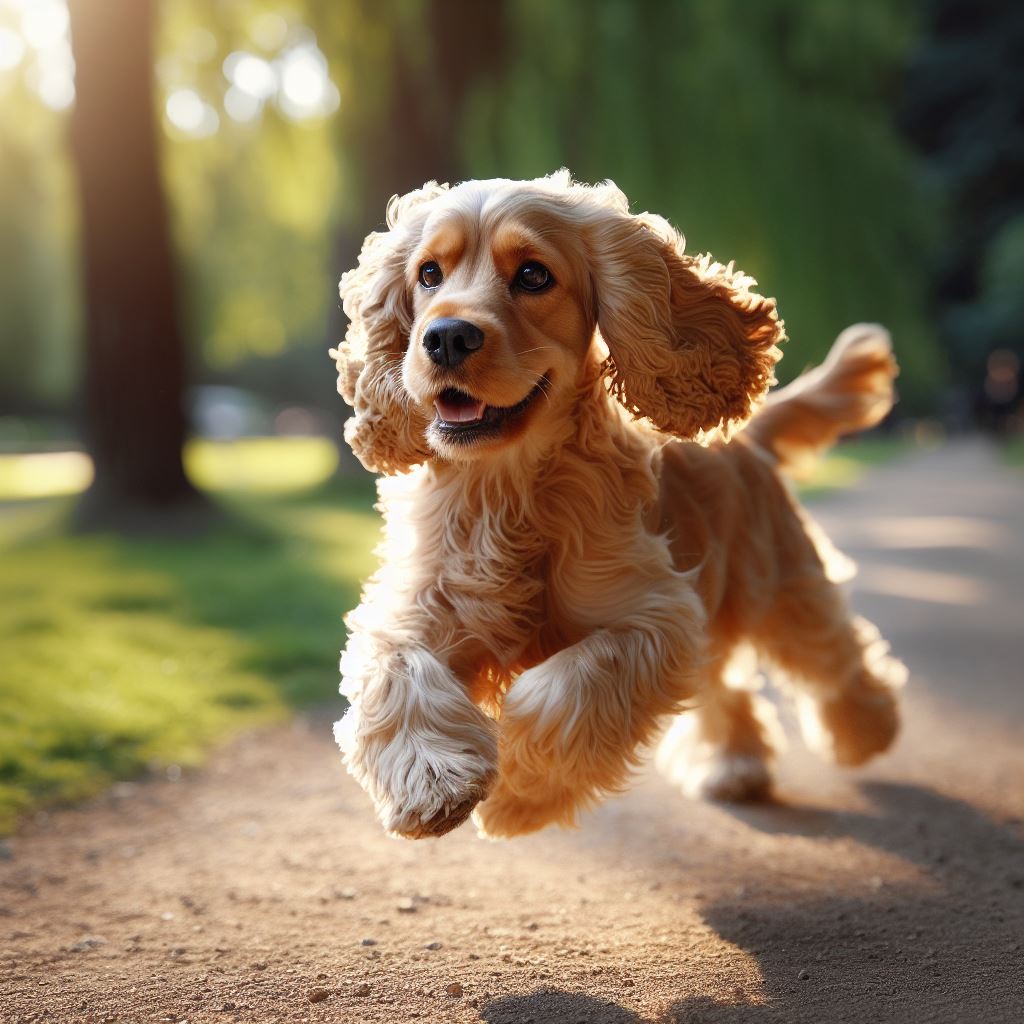
Cocker Spaniels are small dogs that were originally bred for hunting birds. They are known for their sweet, cheerful, and playful personality. They are also very affectionate and loyal with their owners and family.
However, Cocker Spaniels can also be very sensitive and nervous, especially if they are not well-bred or well-socialized. They may bite if they are scared, hurt, or annoyed by something or someone. They may also show aggression due to health problems such as ear infections, eye diseases, or brain disorders.
Cocker Spaniels need regular grooming and health check-ups to keep them clean and healthy. They also need gentle and positive training and socialization to learn how to cope with different situations and stimuli.
7. Chihuahua

Chihuahuas are the smallest dogs in the world, but they have a big personality. They are known for their sassiness, spunkiness, and devotion to their owners. They are also very alert and curious, making them good watchdogs.
However, Chihuahuas can also be very feisty and stubborn, especially if they are not well-trained or well-socialized. They may bite if they are provoked, frightened, or spoiled by their owners. They may also show aggression toward other dogs or animals that they consider as rivals or threats.
Chihuahuas need proper training and guarding farms. They are known for their intelligence, alertness, and loyalty. They are also very friendly and affectionate with their owners and family.
6. Jack Russell Terrier
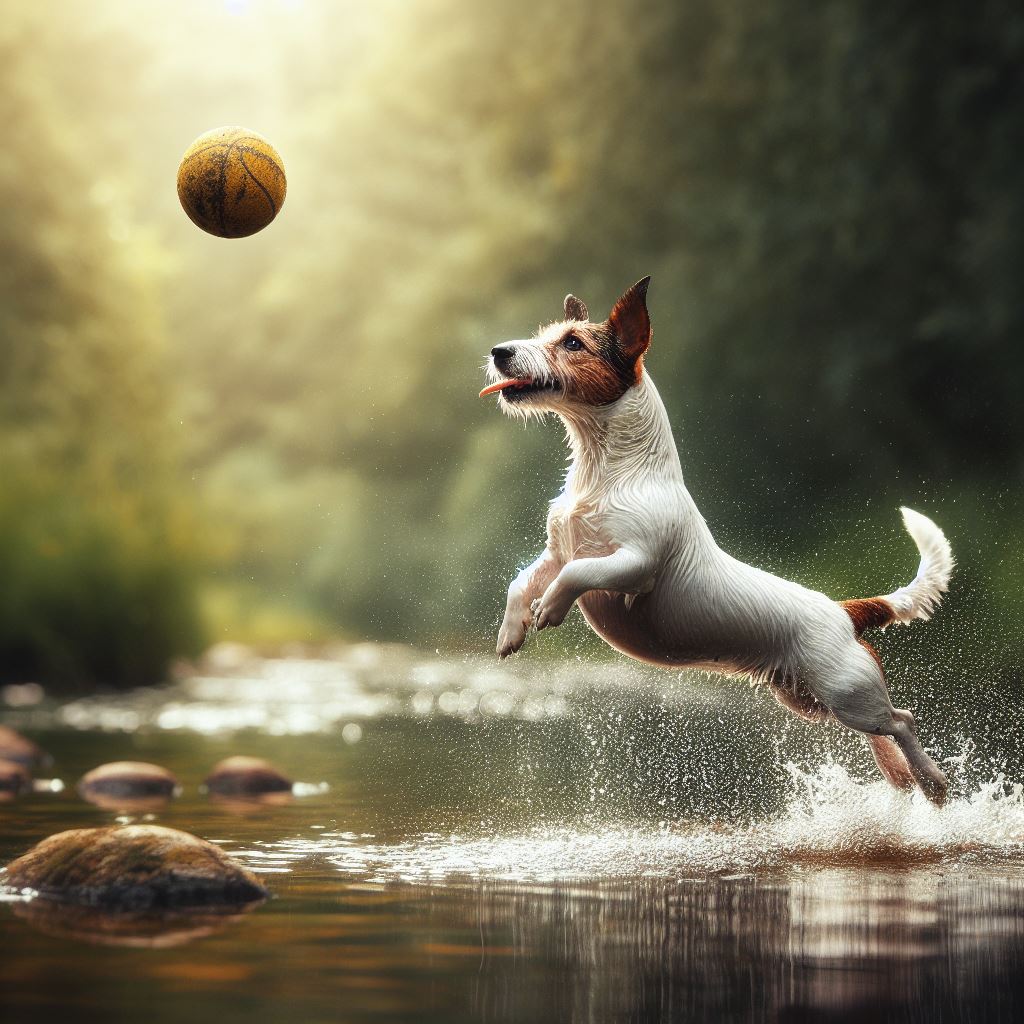
Jack Russell Terriers are small dogs that were originally bred for hunting foxes. They are known for their intelligence, energy, and courage. They are also very independent and adventurous, making them fun and lively companions.
However, Jack Russell Terriers can also be very aggressive and dominant, especially if they are not well-bred or well-trained. They may bite if they are bored, frustrated, or challenged by something or someone. They may also show aggression toward other dogs or animals that they see as prey or competitors.
Jack Russell Terriers need a lot of exercise and mental stimulation to keep them busy and satisfied. They also need firm and consistent training and socialization to learn how to respect and obey their owners and other people and animals.
5. Miniature Schnauzer
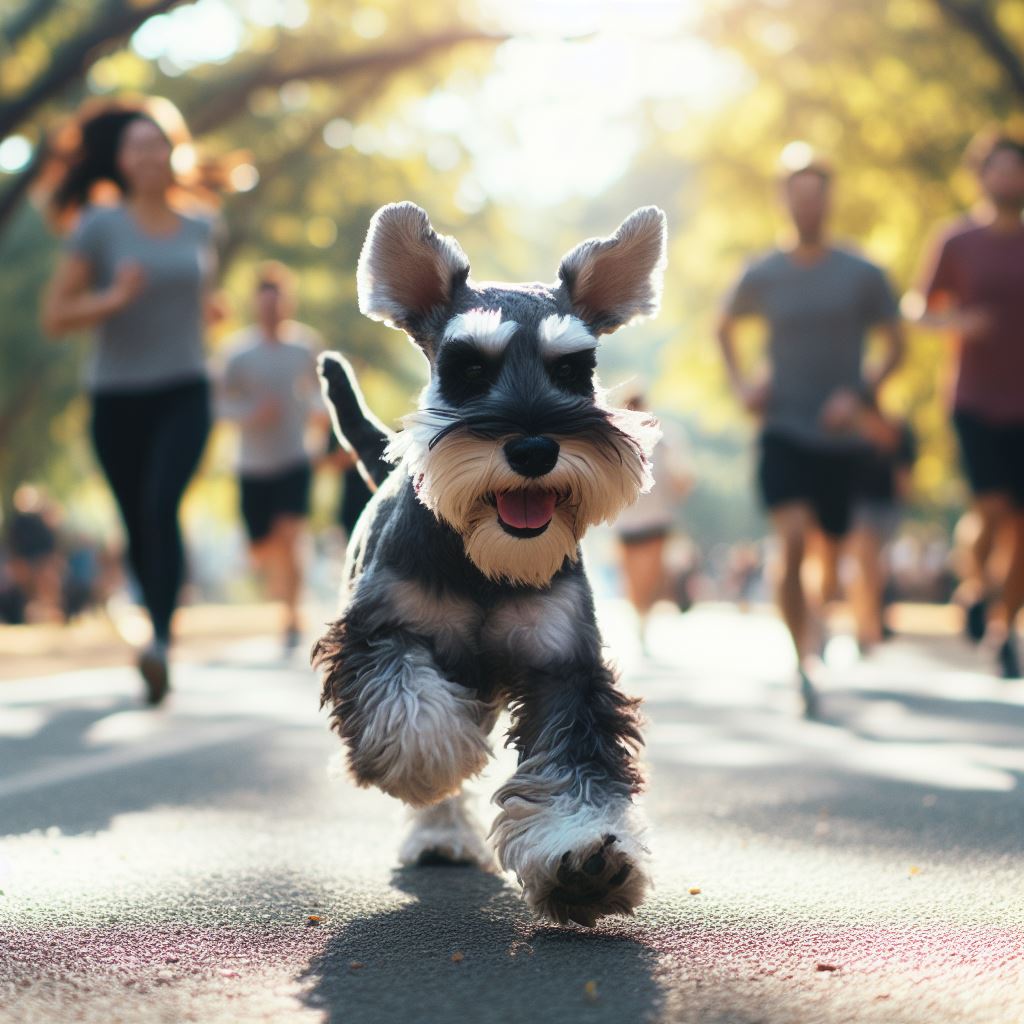
Miniature Schnauzers are small dogs that were originally bred for rattingand guarding farms. They are known for their intelligence, alertness, and loyalty. They are also very friendly and affectionate with their owners and family.
However, Miniature Schnauzers can also be very territorial and vocal, especially if they are not well-trained or well-socialized. They may bite if they are annoyed, scared, or protective of their owners or property. They may also show aggression toward other dogs or animals that they see as intruders or threats.
Miniature Schnauzers need regular grooming and health check-ups to keep them neat and healthy. They also need proper training and socialization to learn how to behave calmly and politely.
4. Rottweiler
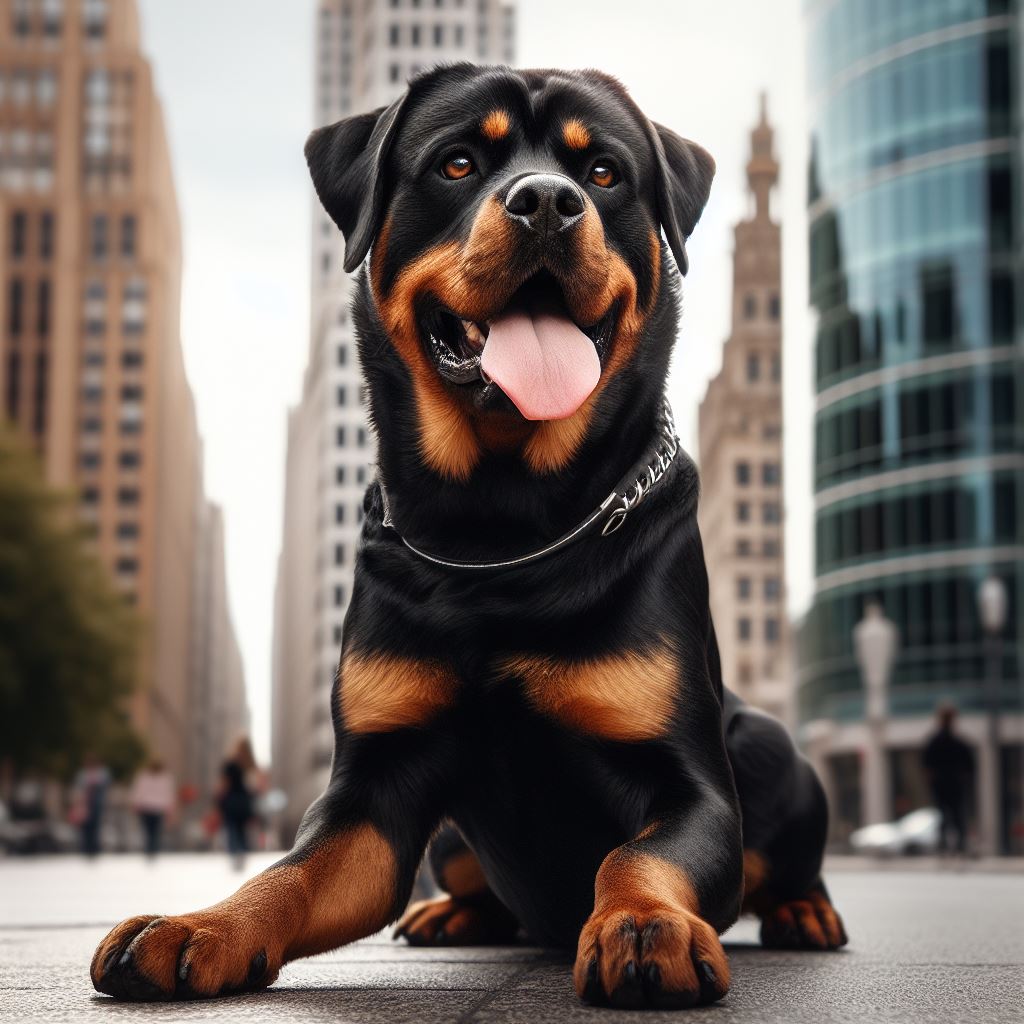
Rottweilers are large dogs that were originally bred for driving cattle and guarding estates. They are known for their strength, endurance, and courage. They are also very loyal and devoted to their owners and family.
However, Rottweilers can also be very powerful and assertive, especially if they are not well-bred or well-trained. They may bite if they are provoked, confused, or insecure about their role or position. They may also show aggression due to poor socialization, abuse, or neglect.
Rottweilers need a lot of exercise and mental stimulation to keep them fit and happy. They also need firm and consistent training and socialization to learn how to respect and trust their owners and other people and animals.
3. Pit Bull
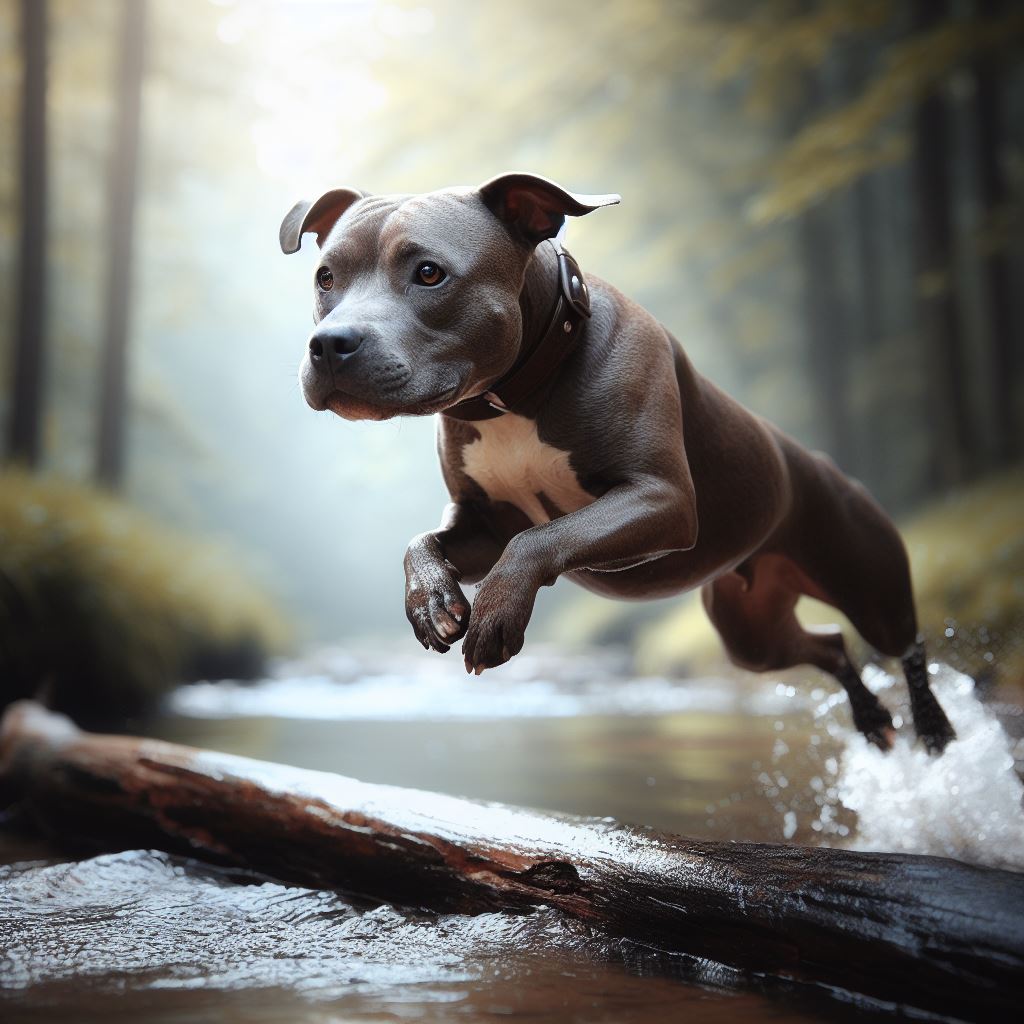
Pit Bulls are medium-sized dogs that were originally bred for fighting bulls and bears. They are known for their tenacity, resilience, and determination. They are also very affectionate and loyal with their owners and family.
However, Pit Bulls can also be very aggressive and unpredictable, especially if they are not well-bred or well-trained. They may bite if they are triggered by their prey drive, fighting instinct, or pain tolerance. They may also show aggression due to bad reputation, discrimination, or mistreatment.
Pit Bulls need a lot of exercise and mental stimulation to keep them active and engaged. They also need proper training and socialization to learn how to behave appropriately and peacefully.
2. Dachshund

Dachshunds are small dogs that were originally bred for hunting badgers and other burrowing animals. They are known for their intelligence, curiosity, and perseverance. They are also very playful and charming with their owners and family.
However, Dachshunds can also be very stubborn and independent, especially if they are not well-trained or well-socialized. They may bite if they are bored, frustrated, or challenged by something or someone. They may also show aggression toward other dogs or animals that they see as rivals or threats.
Dachshunds need regular exercise and mental stimulation to keep them healthy and happy. They also need positive and consistent training and socialization to learn how to cooperate and communicate with their owners and other people and animals.
1. Dalmatian
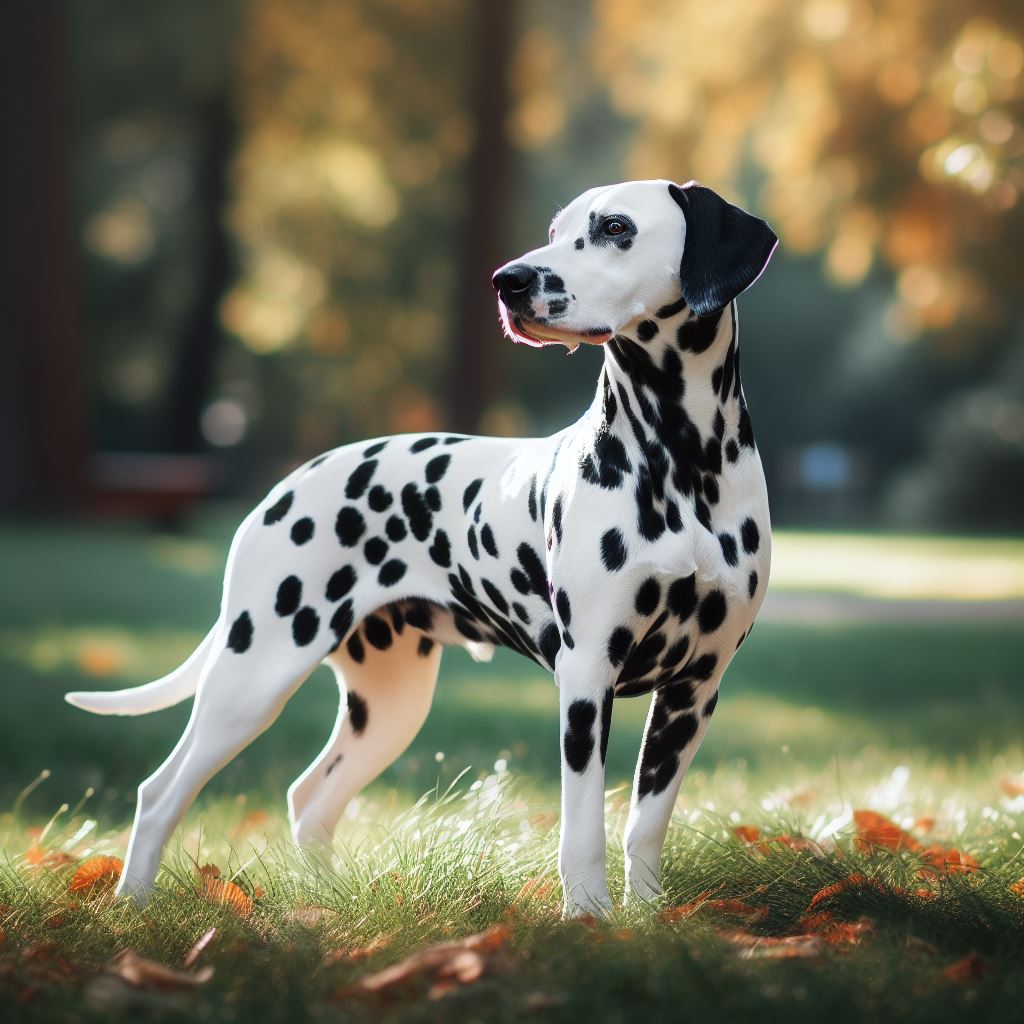
Dalmatians are medium-sized dogs that were originally bred for running alongside carriages and guarding stables. They are known for their elegance, stamina, and intelligence. They are also very loyal and friendly with their owners and family.
However, Dalmatians can also be very aggressive and impulsive, especially if they are not well-bred or well-trained. They may bite if they are overexcited, stressed, or bored by something or someone. They may also show aggression due to health problems such as deafness, urinary stones, or skin allergies.
Dalmatians need a lot of exercise and mental stimulation to keep them fit and entertained. They also need proper training and socialization to learn how to behave calmly and politely.
Conclusion
As you can see, there is no definitive answer to the question of which dogs are most likely to bite. Any dog can bite if it is provoked, fearful, or in pain. However, some breeds may have a higher tendency to bite due to their genetics, temperament, or breeding history.
Therefore, it is important to do your research before choosing a dog breed that suits your lifestyle and expectations. It is also important to provide your dog with adequate care, training, and socialization to prevent or reduce the risk of dog bites.
We hope this article has helped you understand more about dog aggression and how to prevent it. Remember, dogs are not born aggressive; they are made that way by humans. By treating them with love and respect, you can enjoy a safe and happy relationship with them.
